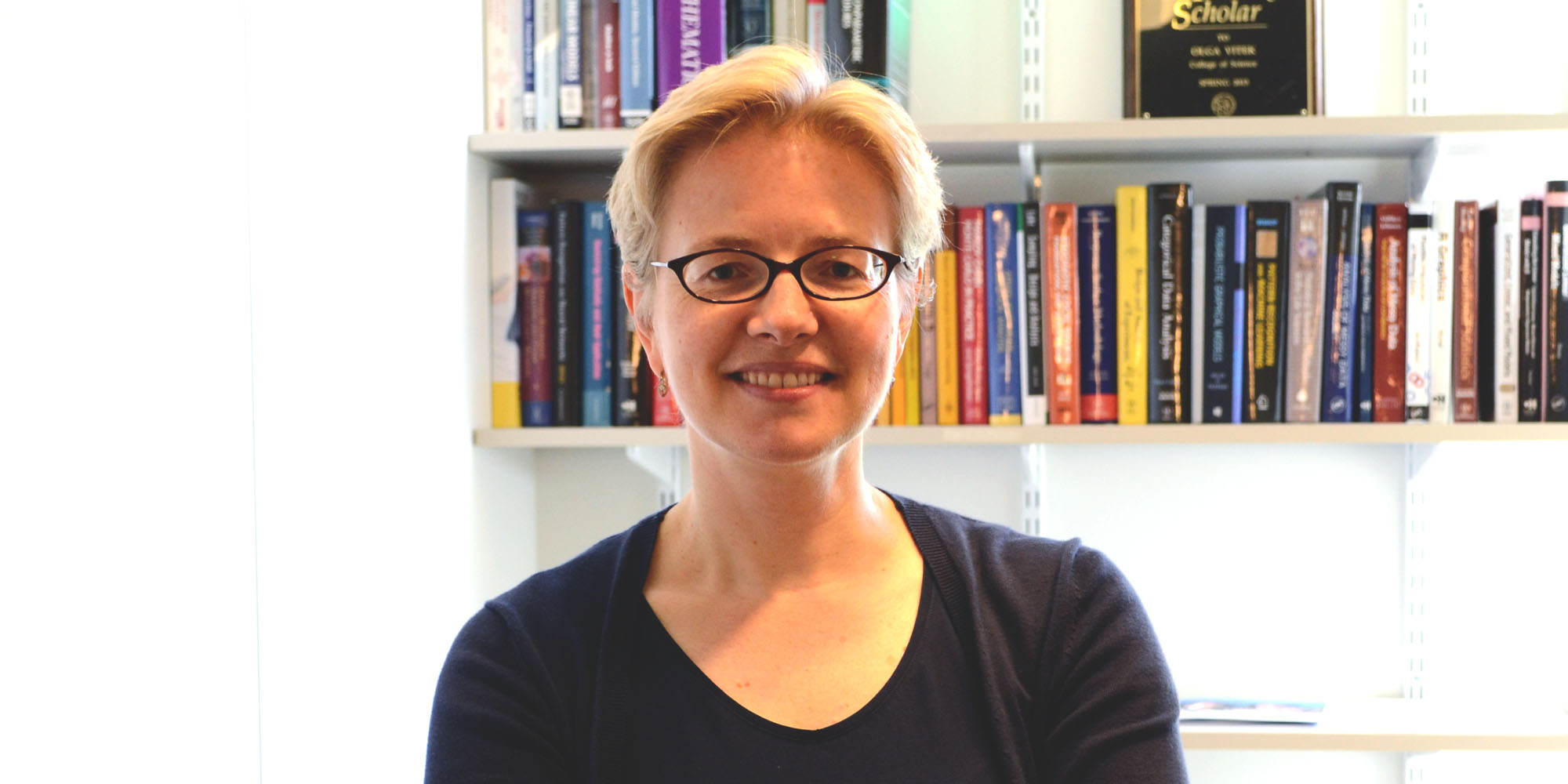by Julia Renner, Marine Biology 2018
In the field of proteomics, rapid advancements made possible by improvements in technology are uncovering new information about the structure, function, and interactions of all of the proteins in an organism—the ‘protein genome.’ Such huge quantities of data, though, can be challenging to interpret and translate into meaningful results.
The short course on computation and statistics for proteomics, led by the Olga Vitek lab, fills that void.
The course, ‘Computation and Statistics for Targeted Proteomics,’ took place from last month on Northeastern’s campus. It was hosted by Vitek, whose lab at Northeastern focuses on ‘statistical methods for studies of biomolecular systems,’ and Brendan MacLean, a developer of the Skyline Targeted Proteomics Environment at the University of Washington.
This course is being offered at a critical time. As Professor Reudi Aebersold, a leader in the field of proteomics, explains, statistical and computational methods have struggled to keep up with advancements in proteomics. “We’ve had a number of significant setbacks over the last 15 years, and they always were related to statistical and computational issues,” Aebersold says, adding that statistics and computation are “absolutely central” to the progressing field. In the past, “results collapsed because they couldn’t be verified.”
Boston, and Northeastern specifically, was an ideal location for the course. “Boston has a very vibrant and active community working in this area,” Vitek says, speaking to the city—and Northeastern—being a global hub for biotechnology research. Past venues have ranged from across the U.S. to locations as distant as Zurich and Barcelona. The Aebersold, MacLean, and Vitek labs have hosted the course every three to four months, and the courses fill up quickly. “Each location is somewhat different,” Vitek says, “because we always try to bring in as much local expertise as possible.” While the other locations cover more details of experimental methods, the Northeastern course has a particular focus on computation and statistics. Participants at Northeastern’s course came from as far away as Germany, Holland, Brazil, and Italy, and applications to participate in the highly competitive course came from India and Russia.
It’s this diversity in expertise, and the collaboration it lends itself to, that gives the course its unique reach. Vitek identifies three groups of people involved in targeted proteomics: scientists who use existing technology for biological research, those developing the technology, and computational experts. “Every group needs to understand what the others are doing,” which is typically difficult to accomplish, but during the course, “we actually fill in the blanks for everybody,” bringing separate groups and their areas of understanding together. This collaboration is crucial for making meaningful progress, because as Vitek points out, “methods without software are not useful, and software with suboptimal methods are not useful either.” As technology evolves, “we have this conversation in a collaborative environment,” she says, which is “really key.”

